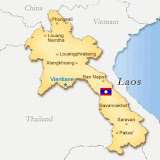I am with a group of mainland people these few days in the US, and I am surprised by how much they can spend in brand name products.
Mainland people generally earn less than Hong Kong people. Those who earn HK$10,000 are the prestigious class.
But one of the ladies has already purchased a HK$5,000 Fendi bag in Hong Kong. Another lady has purchased a Bottega Veneta bag, costing HK$15,000, in US despite she has been repeatedly told that the product in Hong Kong may be cheaper because the city has no sales tax.
Some other ladies of the group have also purchased brand name products.
First, I wonder how come these mainland people have so much to spend.
Second, I try to think of the phenomenon behind the scene.
Hong Kong people, especially those with high income, will not recklessly spend HK$15,000 to buy a bag. Brand name is important, but we will also consider our affordability and whether the product represents value for money.
There are some Hong Kong people with low wages and lower rank position trying to save every penny for brand name products. Despite that, I do believe that Hong Kong people are less eager for proving and showing their status with brand name products.
The other conclusion I can reach is that mainland people consuming power is rising. Hong Kong people will make a bargain even when buying fake products.
Subscribe to:
Post Comments (Atom)










2 comments:
The luxurious boutiques worldwide are throwing their arms to Chinese tourists nowadays. Their consumption power is unbelievably strong, I have an opinion that the price is the key factor, not the quality or practicality. Probably they are pursuing scarcity or uniqueness to present the taste or class. By the way, one's taste is not judged by a piece of adornment but overall appearance, including behavior and presentation. May I suggest to you to conduct a survey on this topic :)
p/s: what a drastic contrast to the poor community in China.
yup, someone has told me that lots of boutiques also reserve the whole floor for chinese tourists in France, partly because of $, partly because of noise they create.
Post a Comment